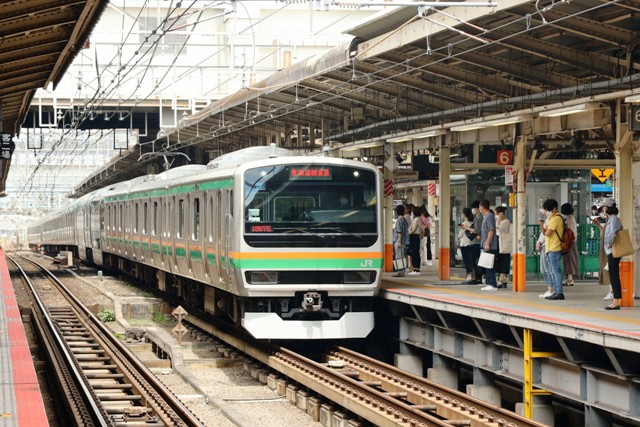EMU JR East E231 series arrives at Yokohama station |
The EMU E231 series is one of the major group trains on the JR East lines, and widely operated in the Tokyo metropolitan area. It was launched in 2000 to replace the old models such as the 103, 115, 201 and 205 series. A total of 2,736 cars were built by Tokyu Sharyo (present J-TREC), Kawasaki Heavy Industries and JR East Niitsu Factory from 2000 to 2011. There are two types of E231 series. One is a commuter train type, and the other is a suburban train type. Here, I'm going to explain the latter in this post
The suburban train type of the E231 series was launched in 2000 on the Tohoku main line. Different from the commuter train type, it has 6 doors per unit. The suburban type train consists of a 10-car main set and a 5-car additional set. In other words, it's operated as a 15-car set (a 10-car main set coupled with a 5-car additional set) or 10-car set (a 10-car main set alone). All trains belong to Oyama Railyard on the Tohoku main line or Kohzu Railyard on the Tokaido main line.
The bodies are stainless-steel, with orange and green-colored stripes. The main set has two double-decker Green Cars (first class cars). With regard to the technical specifications, the suburban type of the E231 series has IGBT-VVVF (Insulated Gate Bipolar Transistor-variable frequency drive) electric control and regenerative braking systems. The traction motor is type MT73 induction motors that generate 95 kilowatts of electricity.
| EMU JR East E231 series travels on the Yokosuka line |

